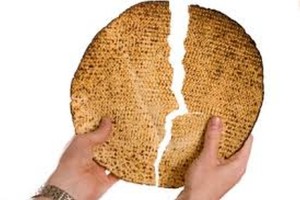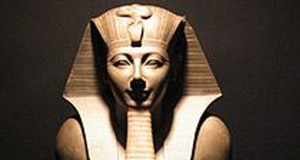The broken piece of unleavened bread is set aside and hidden away to mimic the lifestyle of the pauper, who suffers food insecurity and always saves some for later.
 Burbank, CA, April 6 – The nine-year-old son of a Catholic mother and Jewish father, hoping for a new toy in case he finds the Afikoman at this year’s Passover Seder, posted a letter to Santa Claus earlier this week in which he listed, in order, his preferred choices.
Burbank, CA, April 6 – The nine-year-old son of a Catholic mother and Jewish father, hoping for a new toy in case he finds the Afikoman at this year’s Passover Seder, posted a letter to Santa Claus earlier this week in which he listed, in order, his preferred choices.
Chandler Cohen-MacArthur, a fourth-grader, anticipates being the child who locates and negotiates a trade for the ceremonial piece of matza eaten toward the end of the festive Passover Eve meal later this month. As such, Chandler – whom his parents named after their favorite character from the classic sitcom Friends – followed the same procedure his intermarried parents taught him in advance of Christmas: write a letter to Santa Claus. The letter was returned to the Cohen-MacArthur home as undeliverable, but the boy’s mother Stevie intercepted it before Chandler might notice. Later that evening, she consulted with her husband Michael on whether to get Chandler a new PlayStation system, a new tablet, tickets to see Taylor Swift, or a summertime trip to the various theme parks in Orlando, Florida, regardless of whether their son actually finds the Afikoman.
The Afikoman, a broken piece of unleavened bread set aside and hidden away at the beginning of the Seder, represents, among other things, the lifestyle of the pauper, who suffers food insecurity and always saves some, not knowing where or when he will find another meal. It fits into a larger theme of Passover, which involves stripping away the nonessential elements of the self in order to achieve liberation, both psychologically and, as a consequence, physically. The abstinence from leavened grain products during the festival is expressed through the unleavened bread known as matza, in which only the basic ingredients flour and water are allowed – and it is rendered unusable for Passover if the dough sits and ferments slightly, even without the manual addition of yeast.
Many families maintain a practice in which the children find or pilfer the Afikoman, in a game-like ritual meant to keep the children engaged and interested in the proceedings. In exchange for returning it they often receive gifts. In some families the gifts are elaborate affairs, undermining the very message that the Afikoman is calculated to drive home.
“I think it’s adorable,” said Michael, who grew up Reform, and remains only dimly aware that the Afikoman embodies the very opposite of the entitlement his son’s behavior represents. “I kind of wish I’d thought of suggesting such a letter myself, but I’d have addressed it to the Easter Bunny instead, in keeping with the season.”




